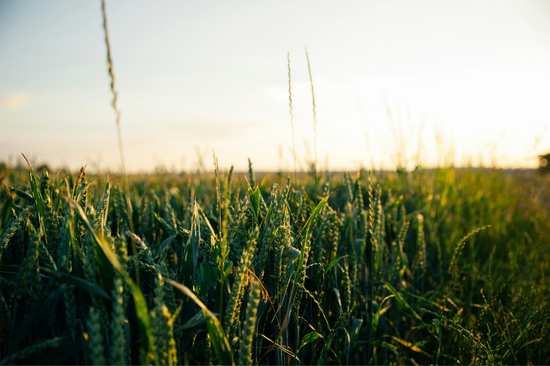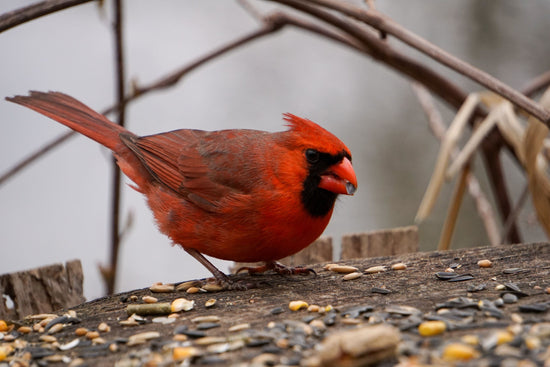Copper sulfate is an inorganic compound that has a wide variety of industrial and agricultural uses. For example, it can be used as a pesticide, fungicide, herbicide, algaecide, or molluscicide.
The most well-known use for this chemical compound is controlling the growth of algae in ponds or lakes. However, it can also be used to kill pests, as an oxidizer, and in the manufacturing process.
Today's article will explore all of the different ways that copper sulfate can be used, so you know when it might come in handy!
The list below includes all of the uses of this helpful chemical in the following industries:
- Agriculture
- Public Health and Medicine
- Industrial Uses
When It All Began
Carl Wilhelm Scheele, a Swedish chemist, discovered Copper Sulfate for the first time in 1770. For over 200 years, copper sulfate has been used for various purposes, including tanning leather, bleaching wood pulp, dyeing cotton and woolen cloth, coagulating milk products, and cleaning copper utensils. The compound can be found in nature, but it can also be manufactured and sold commercially.
Although Copper Sulfate was developed as a fungal inhibitor, it was discovered to have additional abilities, such as being a powerful oxidizer and reducing rust on iron.
What Are the Uses of Copper sulfate?
Copper sulfate is a popular algicide, fungicide, herbicide, etching agent, and wood preservative. This compound is also used to control the corrosion of metals in water.
Copper sulfate's wide range of properties makes it a valuable ingredient in a wide range of products. It can be found in more than 6,000 consumer products worldwide and is often regarded as one of the most environmentally friendly chemicals currently available.
The following are the benefits of copper sulfate:
- It prevents metal corrosion
- It prevents oxidation
- It inhibits fungal growth
- It can prevent wood from rotting
What Are The Uses of Copper Sulfate in Agriculture?
Copper sulfate is a powerful herbicide that has been used for centuries. It is also a fungicide, insecticide, and nematicide. The most common use of copper sulfate is to control weeds in the garden.
This compound can be used in many ways. For example, farmers can use it to kill off weeds before they get too tall, but it can also be used as a fertilizer to help crops grow healthier and more robust. Because of the wide range of applications, copper sulfate has become one of the most commonly used chemicals in agriculture today.
Copper sulfate belongs to the category of "inorganic sulfur compounds." It dissolves easily in water or alcohol. Although it is not toxic at low concentrations, high doses may be harmful.
Here are other ways you can use copper sulfate in agriculture:
Foliar Spray
Copper sulfate is a common and effective fungicide as it kills fungi and controls the spread of plant diseases. You can apply it to your plant's leaves, stems, roots, fruit trees, or vines. Don't forget to mix it with water before spraying.
Water Irrigation
Copper sulfate is a chemical compound typically used in agricultural water irrigation to help plants grow, especially citrus fruits such as oranges, lemons, and grapefruit. Copper sulfate can also be used for pest control since it kills soil-borne fungi and nematodes.
Seed Treatment
Copper sulfate is widely used in agriculture for treating seeds before they are planted.
Root Drench
The application of copper sulfate for the treatment of tree roots is a vital part of landscape maintenance. It is also a valuable and popular tool for vegetable gardeners. Copper sulfate can be used to treat trees, shrubs, gardens, lawns & more with 10-25 ml per 100 gallons of water.
Crop Protection
Copper sulfate is a potent pesticide that kills the most common plant-based insects and mites. In addition, it protects crops from the effects of aphids, mites, caterpillars, and flea beetles. However, the chemical has a few side effects, such as damaging plants and causing human poisoning if not used correctly.
Fungal Disease Control
Copper sulfate is an organic compound that has long been used to control fungal diseases in agriculture. This fungicide is often used on vegetables, such as broccoli. Copper sulfate is a polyvalent substance that can kill many fungi, including those that cause blight and mildew. This fungicide has been shown to have a shallow level of toxicity for plants and animals and will not harm the environment.
Bacterial Disease Control
Copper sulfate is a commonly used compound in the agricultural industry. It is mainly used to prevent and control bacterial diseases in tomatoes, lettuce, potatoes, and cherries. Copper sulfate works by killing bacteria that feed on plant tissue.
Pesticide Application
Copper sulfate is used to get rid of unwanted pests like snails and slugs, which are extremely destructive to plants and gardens.
Antimicrobial
Although commonly used as a fungicide, some farmers have been using copper sulfate as an antimicrobial for crops. It's a great alternative to dangerous chemicals & antibiotics because it's inexpensive and doesn't require special handling.
Prevent Algae Growth
Copper sulfate is used to treat and prevent bacteria, algae, and other unwanted plant life. This toxic substance reacts with the water to create a thick foam that coats particles to increase their mass.
Uses of Copper Sulfate in Public Health and Medicine
This useful inorganic copper compound has been used in the field of public health and medicine for many years. It is used to treat and prevent copper deficiency in the body, but it can also create a safer environment for people.
Here are some copper sulfate uses in public health and medicine:
- It can be applied to lakes and reservoirs to kill algae.
- Used in the flooring mixture of swimming baths to inhibit fungi and reduce athlete's foot.
- It can be used as a molluscicide to eliminate a parasite related to the bilharzia disease.
- Used for prevention of malaria, which includes copper sulfate in the preparation of Paris green for possible use against mosquito larvae.
- Used as a copper-containing bactericidal, fungicidal, and virucidal agent. Attacks copper-dependent enzymes in microorganisms, disrupting their vital copper-dependent processes.
- Used in the production of pharmaceuticals.
Copper sulfate has been used since the late 1800s to prevent or treat several systemic diseases, including typhoid fever, cholera, dysentery, malaria, tetanus, and poliomyelitis. The compound is also used as a copper supplement for patients under TPN (total parenteral nutrition).
What makes copper sulfate so effective against bacterial pathogens is its ability to release free oxygen molecules within the bacterial cell membrane. This oxidative stress kills bacteria by disrupting their metabolic pathways without damaging vital DNA and lipids. The oxidation also causes a decrease in cell membrane permeability which leads to cell death.
Industrial Uses of Copper Sulfate
Copper sulfate is used in copper plating, metal etching, and it’s also used as a drying agent.
Here are some specific examples of its use in an industrial setting:
- It is often used as a preservative in glues and binders to prevent mold growth.
- It is a wood preservative that can be used in oil-based and water-based forms.
- It can be used to create mortar to cover the surface of bricks or stones to prevent fungus from growing.
- It can be used as an addition to concrete, a coloring agent for the concrete, and in swimming pools.
- It is a chemical used as an additive in concrete that has antifungal properties.
- Often it is used as a copper-based fungicide to protect against lichens, molds, and similar growths on asbestos cement roofing and other building materials.
- It is used to control the growth of tree roots in sewers. Its toxicity will kill off any potential root growth in copper-pipe lines.
Safety Considerations When Using Copper Sulfate
When using copper sulfate, it is essential to always follow the instructions on the label. Do not apply it more than once every 48 hours. Although it can be used as a fertilizer and to control pests, overuse can cause severe damage to plants and flowers.
Copper sulfate can be toxic to humans, so please use it with caution. If ingested in any way, it can cause vomiting and stomach pains. If not treated immediately, the person may experience burning pain, diarrhea, headache, nausea, fainting, or shock.
It is critical to understand the potential side effects of using this chemical compound for a specific purpose. If used incorrectly, it can cause severe damage to human organs such as the liver, lungs, heart, kidneys, and brain.
Conclusion
In conclusion, copper sulfate is a long-standing chemical that has been used in many industries. As a result, it has many uses and is readily available online. However, you should exercise caution when preparing and using this product because it can be harmful to your body when not correctly used.
Where to Buy Copper Sulfate?
This inorganic chemical compound is easy to find in a local hardware store and some garden retailers. If you want to buy it in bulk, you can buy it as a powder at our online store. Check out Liquid Copper Fungicide and Copper Sulfate 50lb Bag for your agricultural or industrial needs!





